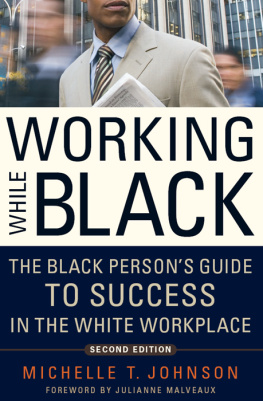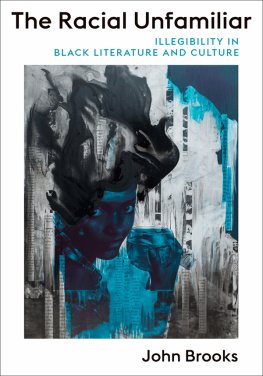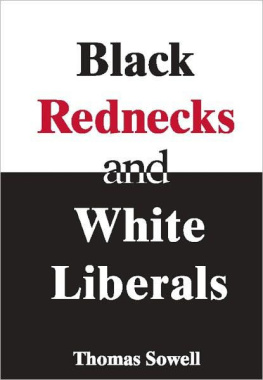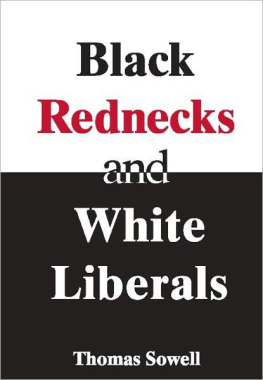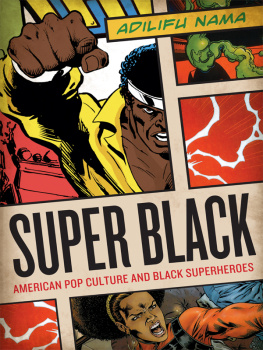The University of Chicago Press, Chicago 60637
The University of Chicago Press, Ltd., London
1981 by The University of Chicago
All rights reserved. Published 1981
Paperback edition 1983
Printed in the United States of America
95 96 11 10 9
Library of Congress Cataloging in Publication Data
Kochman, Thomas.
Black and white styles in conflict.
Bibliography: p.
Includes index.
1. United StatesRace relations. 2. Afro-AmericansCommunication. 3. Intercultural communication. I. Title.
E185.615.K57 305.8'00973 81-3405
ISBN 0-226-44954-8 (cloth)
ISBN 0-226-44955-6 (paper)
ISBN 978-0-226-11225-1 (e-book)
AACR2
Acknowledgments
Many people have given generously of their time and knowledge to make this a better book. For critical reviews of an earlier version of the manuscript or portions of it, I wish to thank Roger Abrahams, Dell Hymes, Joan Foster McCarty, Stan Newman, Bruce Spivey, and John Szwed. For a critical reading of the present manuscript or various chapters I wish to thank Larry Fisher, Allen Harris, and Stan Newman. For being generally on call to give me critical reaction when I needed it, I am especially grateful to Allen Harris, Grace Holt, Joan Foster McCarty, and Stan Newman.
For valuable editorial help with portions of the manuscript, I wish to thank Isabel Grossner and Carolyn Mullins. For helpful editorial advice and criticism I also wish to thank Anthony Graham-White and Frank Williams.
I also owe a great debt of thanks to my students, usually the first group to respond critically to my views about cultural differences between blacks and whites. They also provided me with examples from their own experience that I have used extensively for both documentation and illustration throughout the book.
For her unflagging good will and care in typing the manuscript, I wish to thank Marquita Hampton.
My deepest thanks go to my wife Alexandra, whose unwavering support and encouragement sustained me spiritually through the entire project. I also wish to thank my daughters Adrienne and Switlana for their support.
Introduction
I dont understand you.
I dont know who you are.
Maxim Gorky, Enemies
My research on black language and culture began in the summer of 1966 when I spent a week in the black community in the Bronx, New York, putting together a glossary of black vernacular vocabulary. This was to fulfill an assignment for a summer institute on the disadvantaged, as blacks and members of other minority groups were then called. Attendance at the institute marked the end of five years of teaching junior high school English in New York City and the beginning of college teaching in Chicago.
My research intensified when the director of Chicagos Center for Inner City Studies asked me to teach a graduate course on black language. It was at that point that I discovered how little material on black language and culture had been published. Consequently, what I had to distribute to that first class was embarrassingly meager in proportion to the wealth of information that the students knew themselves or knew existed within the community. The need to remedy this disparity was apparent, both to overcome the years of general neglect on the subject and, most pressing from a personal standpoint, to make both myself and the course respectable.
These goals were accomplished with the help of students who gathered and provided information and helped me gain access to the community to gather information myself. The material that was obtained through this processeach class becoming a resource for the nextestablished the curriculum of the course. The material also eventually reached well beyond the center, serving both graduating students and colleagues who were to start similar courses at other universities. Much of it was also published in a collection I edited (Kochman 1972). The book included articles by students, colleagues at the center, myself, and other researchers who had been doing similar fieldwork elsewhere. It appropriately reflected the ferment, collaboration, and cross-fertilization of this period.
This was also a period that contributed much to my own political education. Issues emerged that transcended the usual academic considerations: whether the course was a good course or I a good teacher or researcher. One such issue was black self-determination. This included blacks assuming traditionally white-held positions, such as in education, that impinged directly on black community life. Consequently it also extended to white instructors teaching black courses. I was never asked outright to step aside, but the signs coming from black students and colleagues were clear and compelling. Therefore I asked to step down, having overcome my initial reluctance to give up a course that I had come to be identified with and so thoroughly enjoyed. I also indicated my willingness to serve the center in ways in which my role as a white instructor would be less of a burden. Like so many whites working in black contexts at the time, my first thought was that the issue was simply a matter of being white or black. Unlike many of my white colleagues, however, I discovered that while being black or white was obviously relevant, the determining issue was then and has since been accountability: accepting a role that would fit within a black political program leading to emancipation from racism, social oppression, and cultural subordination. It also meant being sensitive to the needs of blacks and other minorities to assume greater self-determination over those areas that directly affected their lives.
While teaching at the center, I had already indicated that my own sensibilities and goals for social changehumanism, cultural pluralism, social egalitarianismwould fit well into a program leading to the emancipation of blacks and other socially oppressed minorities. But perhaps more important, in agreeing to step aside, I demonstrated my willingness to accept black leadership in this effort. Consequently, when the center staff was given a contract to provide consultants to work with the black community in Dayton, Ohio, under a Model Cities Education grant, I was asked to participate. Furthermore, when I went to the University of Illinois in 1970, it was a black colleague who was instrumental in bringing me there, blacks in key administrative positions who had determinative votes in hiring me, and black students who ultimately confirmed my appointment.
Today I demonstrate accountability as a matter of course. When I meet minority students in my classes for the first time, I know that where I stand with respect to issues and my personal philosophy will be as important to them as what I know about their language and culture. I also know that I need to indicate where I am going with the information. Consequently information is presented not just as an interesting set of facts but for the sake of argument. Argument in turn is presented for the sake of persuasion, and persuasion for the sake of social change. It is because I use information in this way that I continue to receive the support and cooperation of blacks. In my opinion, the days are gone when anthropologists could work with minority groups simply to demonstrate the methods and procedures of their discipline or to obtain interesting comparative data. If anthropologists are to work with minority groups today, they will be able to serve anthropology and their own career goals only insofar as these are compatible with the social needs and goals of the minority groups with whom they work.



